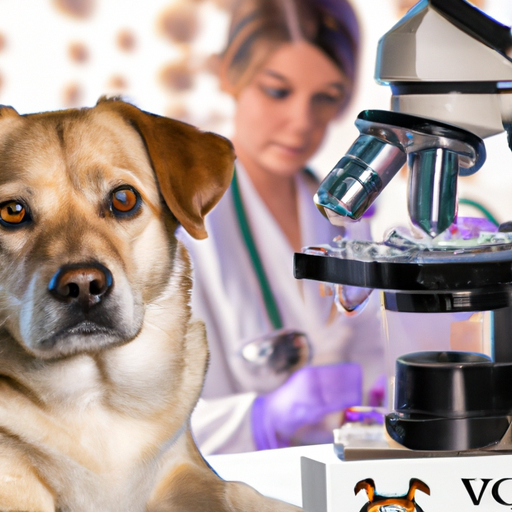Introduction
You’re a caregiver, a person who wears the mantle of responsibility with pride. You’re the one who steps up when your pooch, your loyal companion, falls ill. But what happens when your furry friend starts showing symptoms you’ve never seen before? What if your vet tells you it’s coccidiosis, an infection caused by coccidia? This guide is for you.
Understanding Coccidia
Coccidia are tiny single-celled parasites that infect the intestinal tracts of dogs. Understanding this enemy is the first step in this battle.
- Eimeria and Isospora are the two types of coccidia that infect dogs.
- Infection typically occurs in puppies, but any dog can become infected.
- Infected dogs pass the parasites in their feces, which then contaminate the environment.
Symptoms of Coccidiosis in Dogs
Similar to a mystery novel where every clue matters, recognizing these symptoms is crucial.
- Diarrhea (sometimes bloody)
- Vomiting
- Dehydration
- Loss of appetite
- Weight loss
Treatment Options for Coccidia in Dogs
Like a seasoned warrior, your strategy would be to attack on two fronts – medication and hygiene.
| Treatment | Application |
|---|---|
| Anti-parasitic drugs | Administered by a vet, help kill the parasite |
| Antibiotics | To prevent secondary bacterial infections |
| Hydration therapy | To alleviate dehydration caused by diarrhea |
| Environmental sanitation | To prevent reinfection |
Prevention is Better than Cure
Remember, in the game of life, the best defense is a good offense.
- Regularly clean and disinfect your dog’s living area.
- Ensure your dog has a balanced diet to boost their immune system.
- Regularly check your dog’s feces for any signs of parasites.
Frequently Asked Questions
Q: Can humans get coccidia from dogs?
A: No, the types of coccidia that affect dogs do not infect humans.
Q: Can I prevent my dog from getting coccidia?
A: Yes, by maintaining a clean environment and ensuring your dog has a healthy diet.
Q: Is coccidia deadly for dogs?
A: If left untreated, coccidia can cause severe illness and even death, especially in puppies.
There you have it. You’re now better prepared to handle coccidia in your dogs. Remember, as their caregiver, your role is paramount in their journey to recovery.



